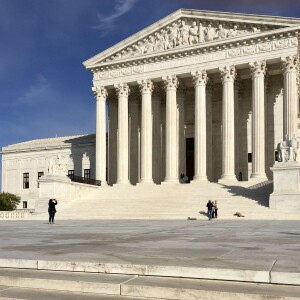
- Podcast Features
-
Monetization
-
Ads Marketplace
Join Ads Marketplace to earn through podcast sponsorships.
-
PodAds
Manage your ads with dynamic ad insertion capability.
-
Apple Podcasts Subscriptions Integration
Monetize with Apple Podcasts Subscriptions via Podbean.
-
Live Streaming
Earn rewards and recurring income from Fan Club membership.
-
Ads Marketplace
- Podbean App
-
Help and Support
-
Help Center
Get the answers and support you need.
-
Podbean Academy
Resources and guides to launch, grow, and monetize podcast.
-
Podbean Blog
Stay updated with the latest podcasting tips and trends.
-
What’s New
Check out our newest and recently released features!
-
Podcasting Smarter
Podcast interviews, best practices, and helpful tips.
-
Help Center
-
Popular Topics
-
How to Start a Podcast
The step-by-step guide to start your own podcast.
-
How to Start a Live Podcast
Create the best live podcast and engage your audience.
-
How to Monetize a Podcast
Tips on making the decision to monetize your podcast.
-
How to Promote Your Podcast
The best ways to get more eyes and ears on your podcast.
-
Podcast Advertising 101
Everything you need to know about podcast advertising.
-
Mobile Podcast Recording Guide
The ultimate guide to recording a podcast on your phone.
-
How to Use Group Recording
Steps to set up and use group recording in the Podbean app.
-
How to Start a Podcast
-
Podcasting
- Podcast Features
-
Monetization
-
Ads Marketplace
Join Ads Marketplace to earn through podcast sponsorships.
-
PodAds
Manage your ads with dynamic ad insertion capability.
-
Apple Podcasts Subscriptions Integration
Monetize with Apple Podcasts Subscriptions via Podbean.
-
Live Streaming
Earn rewards and recurring income from Fan Club membership.
-
Ads Marketplace
- Podbean App
- Advertisers
- Enterprise
- Pricing
-
Resources
-
Help and Support
-
Help Center
Get the answers and support you need.
-
Podbean Academy
Resources and guides to launch, grow, and monetize podcast.
-
Podbean Blog
Stay updated with the latest podcasting tips and trends.
-
What’s New
Check out our newest and recently released features!
-
Podcasting Smarter
Podcast interviews, best practices, and helpful tips.
-
Help Center
-
Popular Topics
-
How to Start a Podcast
The step-by-step guide to start your own podcast.
-
How to Start a Live Podcast
Create the best live podcast and engage your audience.
-
How to Monetize a Podcast
Tips on making the decision to monetize your podcast.
-
How to Promote Your Podcast
The best ways to get more eyes and ears on your podcast.
-
Podcast Advertising 101
Everything you need to know about podcast advertising.
-
Mobile Podcast Recording Guide
The ultimate guide to recording a podcast on your phone.
-
How to Use Group Recording
Steps to set up and use group recording in the Podbean app.
-
How to Start a Podcast
-
Help and Support
- Discover

Send us a text
In Cunningham v. Cornell University, the Supreme Court addressed a fundamental pleading question under the Employee Retirement Income Security Act of 1974 (ERISA). Petitioners—former and current Cornell University employees—alleged that university fiduciaries violated ERISA §1106(a)(1)(C) by causing their retirement plans to pay excessive fees for recordkeeping services to Fidelity and TIAA-CREF, both parties in interest. The Second Circuit dismissed the claim, holding that plaintiffs must also plead that the transaction wasn’t exempt under §1108(b)(2)(A), which allows for reasonable arrangements with service providers.
The Supreme Court unanimously reversed. Writing for the Court, Justice Sotomayor held that §1106(a)(1)(C) sets out a categorical bar against certain transactions between plans and parties in interest, and plaintiffs need only plausibly plead the elements of that section to state a claim. The §1108 exemptions—such as those permitting “reasonable arrangements” for necessary services—are affirmative defenses that defendants must raise and prove. Citing Meacham v. Knolls Atomic Power Lab, the Court emphasized that statutory exemptions laid out in separate provisions do not become part of a plaintiff’s burden unless Congress says otherwise.
Just Sotomayor writing for a unanimous Court. Justice Alito filed a concurrence, joined by Justices Thomas and Kavanaugh.
Read by Jeff Barnum.
More Episodes
 2024-06-24
2024-06-24
 2024-06-24
2024-06-24
 2024-06-23
2024-06-23
 2024-06-21
2024-06-21
 2024-06-21
2024-06-21
 2024-06-18
2024-06-18
 2024-06-17
2024-06-17
 2024-06-14
2024-06-14
 2024-06-11
2024-06-11
 2024-06-01
2024-06-01
 2024-06-01
2024-06-01
 2024-06-01
2024-06-01
 2024-05-31
2024-05-31
Create your
podcast in
minutes
- Full-featured podcast site
- Unlimited storage and bandwidth
- Comprehensive podcast stats
- Distribute to Apple Podcasts, Spotify, and more
- Make money with your podcast
It is Free
- Privacy Policy
- Cookie Policy
- Terms of Use
- Consent Preferences
- Copyright © 2015-2025 Podbean.com



